Kingdom of the Netherlands at COP29 in Azerbaijan: ‘We show we are a reliable partner by setting a good example.’
Weblogs
The 29th edition of the UN Climate Change Conference is taking place in Baku, the capital of Azerbaijan, from 11 to 22 November 2024. This annual ‘Conference of the Parties’ (COP) brings together countries to agree, evaluate and enhance global climate ambitions. The Netherlands is also taking part with a delegation representing the entire Kingdom. Each day, a team of negotiators from various ministries are laying the groundwork for critical decisions. Four special envoys and two youth representatives are also attending the conference. But what exactly are they doing in Baku?
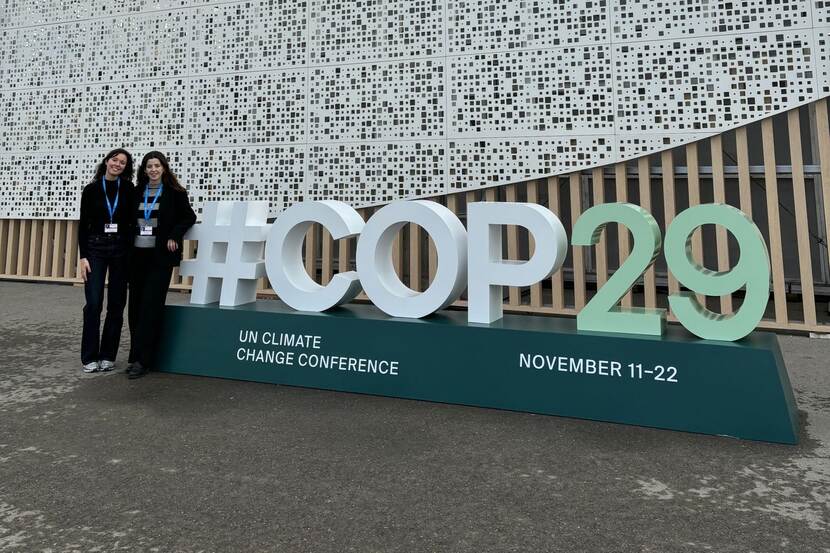
The Kingdom of the Netherlands is being represented at COP29 by a large delegation. The special envoys for climate, water and energy are in Baku, together with Edison Rijna who is there to represent the interests of the Caribbean islands Bonaire, St Eustatius and Saba. Additionally, two Dutch youth representatives are ensuring that the voices of young people in the Netherlands and the rest of the world are clearly heard. Sophie Hermans, the Minister of Climate Policy and Green Growth and also Deputy Prime Minister, is the Dutch delegation’s political leader.
At the opening of COP29, climate envoy Jaime de Bourbon de Parme deputised for Prime Minister Dick Schoof at several meetings with heads of state and government. Mr Schoof had announced that he would not travel to Azerbaijan following the public disturbances in Amsterdam on 7 November.
Bridge builder
‘I work all-year-round to help shape the Netherlands’ global climate action,’ says Jaime. ‘My role involves exploring opportunities to work with other countries, building trust and creating space for negotiations. The COP serves as a key platform for these negotiations.'
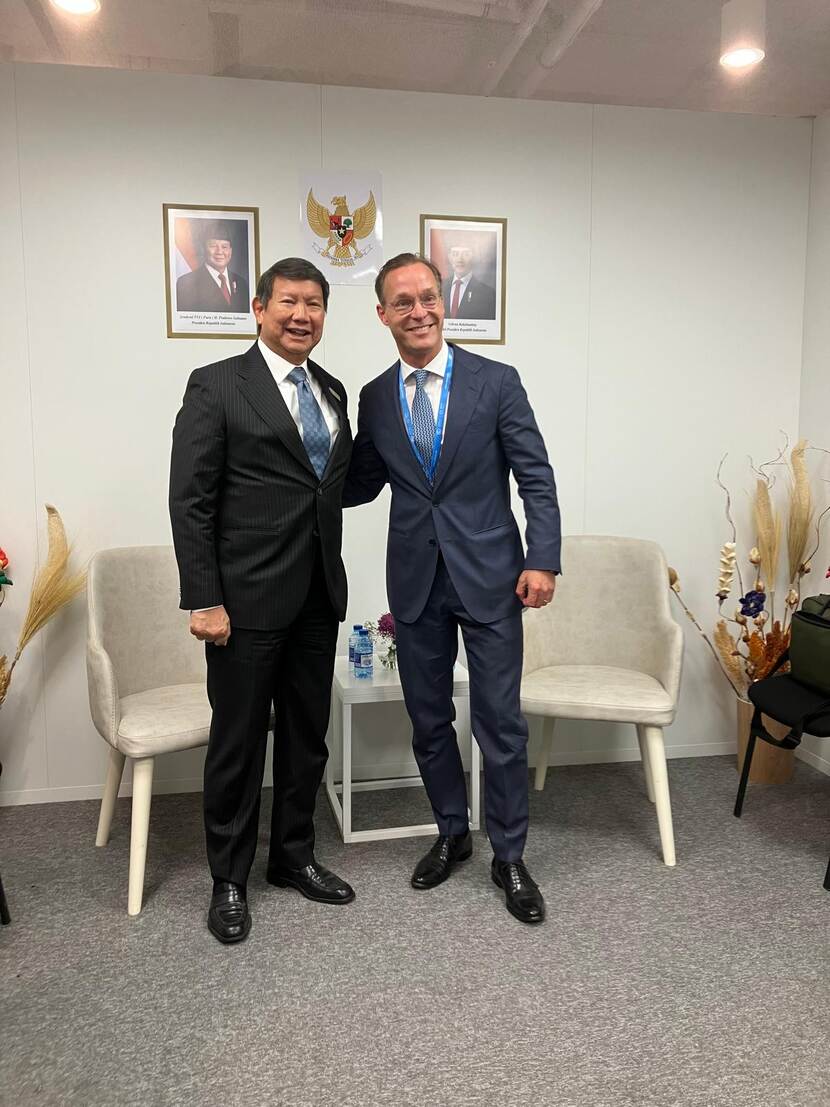
‘As climate envoy, I act as a go-between between the politicians and negotiators here at COP29,’ he continues. ‘The Netherlands often acts as a bridge builder. I’m now leading the diplomatic dialogue with China, alongside envoys from France, Germany, Denmark and the EU. In the negotiations the EU and the Netherlands are seen as reliable partners, recognised for their climate ambitions and support for other countries. Beyond climate finance, the Netherlands also brings considerable know-how and expertise in renewable energy, transport, water and food systems. So it helps that we also have special envoys for those themes.’
Energy
One of these envoys is Frederik Wisselink. He is the Netherlands’ energy envoy, working to promote the worldwide energy transition and energy security. ‘At COP29, I’ll mainly be focusing on the need to meet the global energy targets we agreed last year,’ says Frederik. ‘These include the commitment to triple global renewable energy capacity by 2030, and reduce our use of fossil fuels. Because 2030 will be here before we know it.
‘In the Netherlands an overloaded power grid is fast becoming a problem,’ he continues. ‘One reason for this is the rapid rollout of renewable energy. This issue is also emerging in other countries, too. That’s why this COP will be the first to devote attention to key requirements for the energy transition, like energy networks with sufficient flexibility built in, for example by means of energy storage systems.’
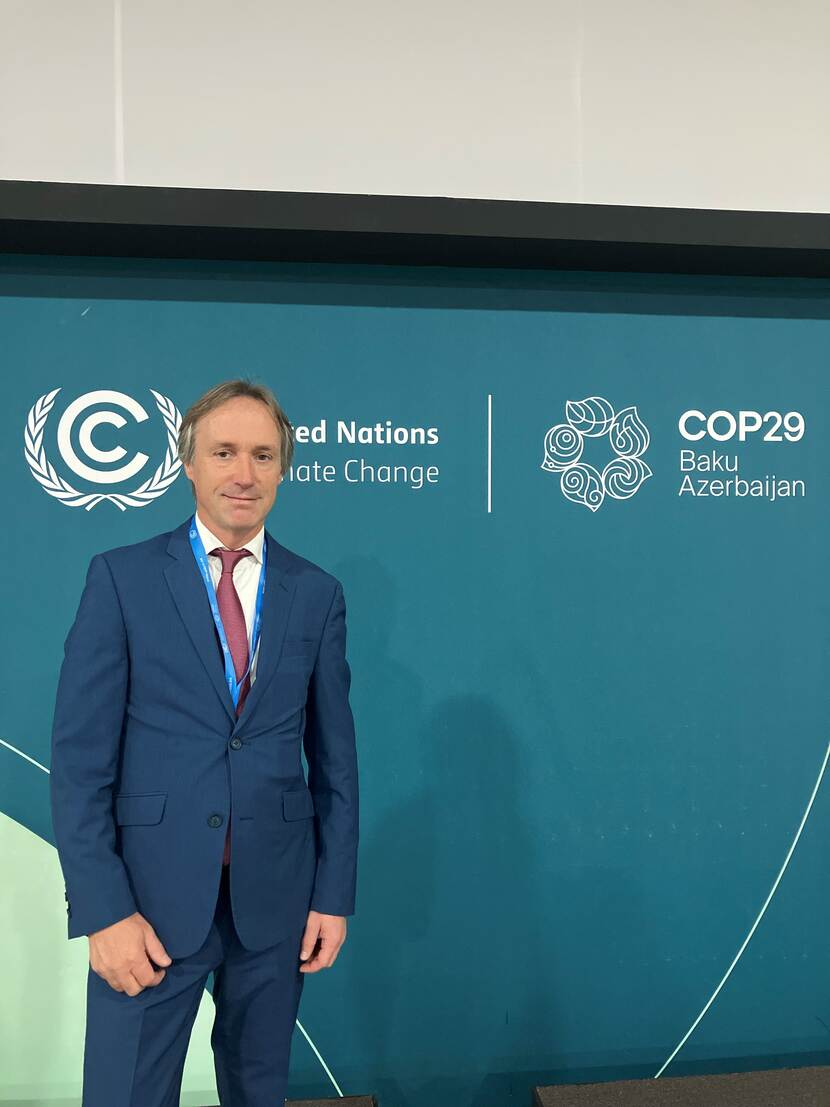
Opportunities
‘The Netherlands has extensive experience with the energy transition, and we’re keen to share that knowledge,’ he adds. ‘The transition also presents opportunities for Dutch businesses in the energy sector. And we’re investing in other countries to help them adapt to the new energy landscape. We also take account of things that are important for the Dutch economy and our own transition, like hydrogen imports.
‘We’re working hard at international level to advance the energy transition in developing countries and emerging markets. Here at COP29, for instance, we’re showcasing our knowledge of offshore wind and hydrogen – areas in which the Netherlands is relatively advanced. We show we’re a reliable partner by first setting a good example, and then exploring how we can help other countries that still have a long way to go.
‘But we’re also here to learn from others,’ he concludes. ‘For instance, the Netherlands has ambitions in nuclear energy and there are countries here with recent experience in building nuclear power stations.’
Water
Meike van Ginneken is also in Baku. She is the government’s water envoy, a role that is more relevant than ever. ‘You only need to switch on the television to see how people are experiencing climate change through water,’ she says. ‘Flooded homes or failed harvests because of too much or too little rainfall. These events hit poor and vulnerable people the hardest.
‘We’re already feeling the impact of climate change,’ she continues. ‘So now is the time for climate adaptation. The Netherlands has a lot of expertise in this area. We have excellent engineers and we’re pioneers in spatial planning, adapting our living environment to climate change. We have businesses developing seeds that can grow with less water, or with saline water. We want to share our knowledge. But we also want to learn from other countries, because the Netherlands is also vulnerable to climate change.’
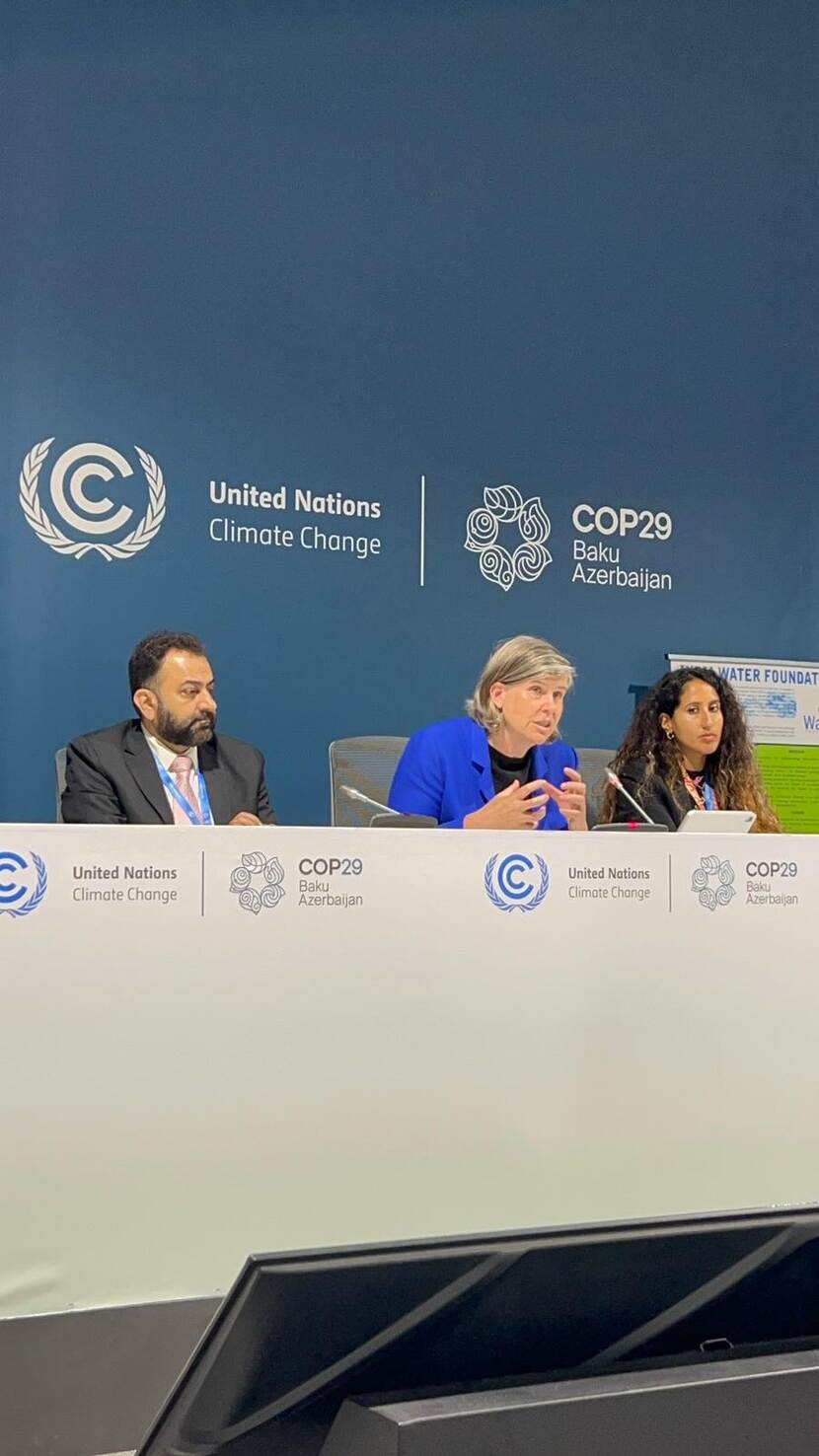
Resilience
To build resilience to climate change, we need money. And money is the subject of some tough negotiations at COP29. ‘Climate finance is the central theme of this COP,’ says Meike. ‘Much of the funding now goes towards mitigating measures to prevent further climate change. But we can’t delay investing in climate adaptation any longer. Countries are already having to adapt to climate change.
‘Globally, only around 9% of all private climate funding is allocated to adaptation, so public investments are key’ she continues. ‘Around 50% of the Dutch government’s international climate finance goes to adaptation. I’m very proud of that, and at COP29 I’ll be encouraging others to follow suit. We also have a reputation as a reliable partner, providing both knowledge and funding to support adaptation efforts in other countries.’
Islands under threat
Few people at COP29 feel the urgency of responding to climate change more acutely than Edison Rijna. As the special envoy for Bonaire, St Eustatius and Saba, he represents the interests of these islands in the Caribbean Netherlands at the United Nations and elsewhere, with a special focus on climate policy.
These specific interests require urgent advocacy, says Edison. ‘One of the main goals of COP29 is to strengthen global cooperation and accelerate action to combat the climate crisis,’ he explains. ‘In my role, I focus on making sure the voices of islands are heard. Because for them, issues like climate adaptation and financing to build resilience and provide protection against rising sea levels are existential issues. It’s my mission to secure firm commitments to bolstering the resilience of island communities. That’s also the reason we’re working with Curaçao and other islands to host a special event here at COP29 to draw attention to this issue.
‘The Kingdom’s six Caribbean islands often don’t qualify for international climate change funding,’ Edison tells us. ‘And that applies to many other islands in the world. So we’re trying to unite as sub-national island jurisdictions to gain access to finance mechanisms for islands. The event at COP29 is a major step towards finally achieving that.’
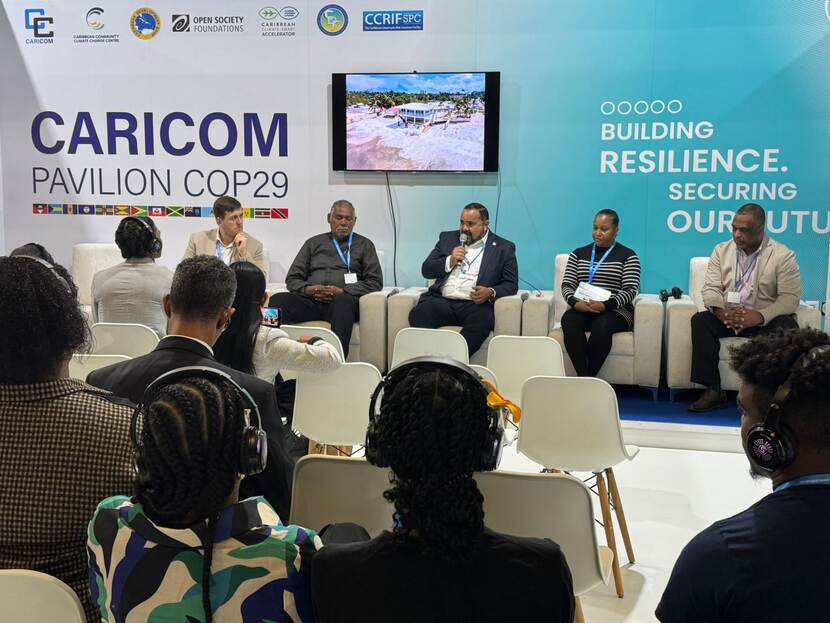
Youth representatives
The climate challenges faced by Bonaire, St Eustatius and Saba tie in closely with the work of the Dutch youth representatives Kiki Ritmeijer and Sarah Nasrawi. ‘We were chosen by young people in the Netherlands to represent their voices in national and international climate policy forums,’ they tell us enthusiastically. ‘And we’re here at COP29 with that mandate.
‘We’re trying to engage with as many diverse groups of young people as possible,’ they continue. ‘Over the past year we’ve talked to an incredible number of young people across the Netherlands. We get their input by giving guest lessons, and organising events and other initiatives. That’s how we learn what young people think about climate and climate change.
‘Using this input, we’ve worked with other youth representatives from the EU to draft a list of priorities,’ says Kiki. ‘We’re going to discuss these priorities with as many stakeholders as possible. We’ll be speaking at numerous side events, holding conversations with ministers and negotiators, and making interventions during closed-door EU consultations. All with the aim of giving the voice of youth a prominent place in the process. Because ultimately, we’re the generation that will have to live with the consequences of the decisions taken here.’
Caribbean Netherlands
‘It’s much harder to reach young people in the Caribbean Netherlands,’ Sarah explains. ‘Yet at the same time, these young people are living in a completely different context, and are already seriously feeling the effects of climate change. That’s why we’ve started a conversation with young people from Bonaire, St Eustatius and Saba on how to promote youth participation in that part of our Kingdom. We hope to see major steps being taken there in the near future.’
Sarah and Kiki in action at COP29, alongside their peers from all over the world.
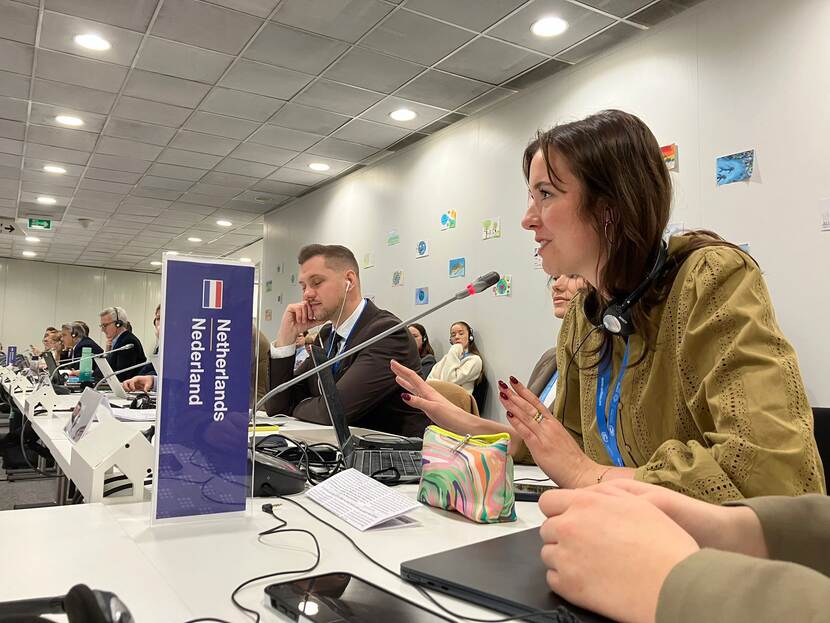
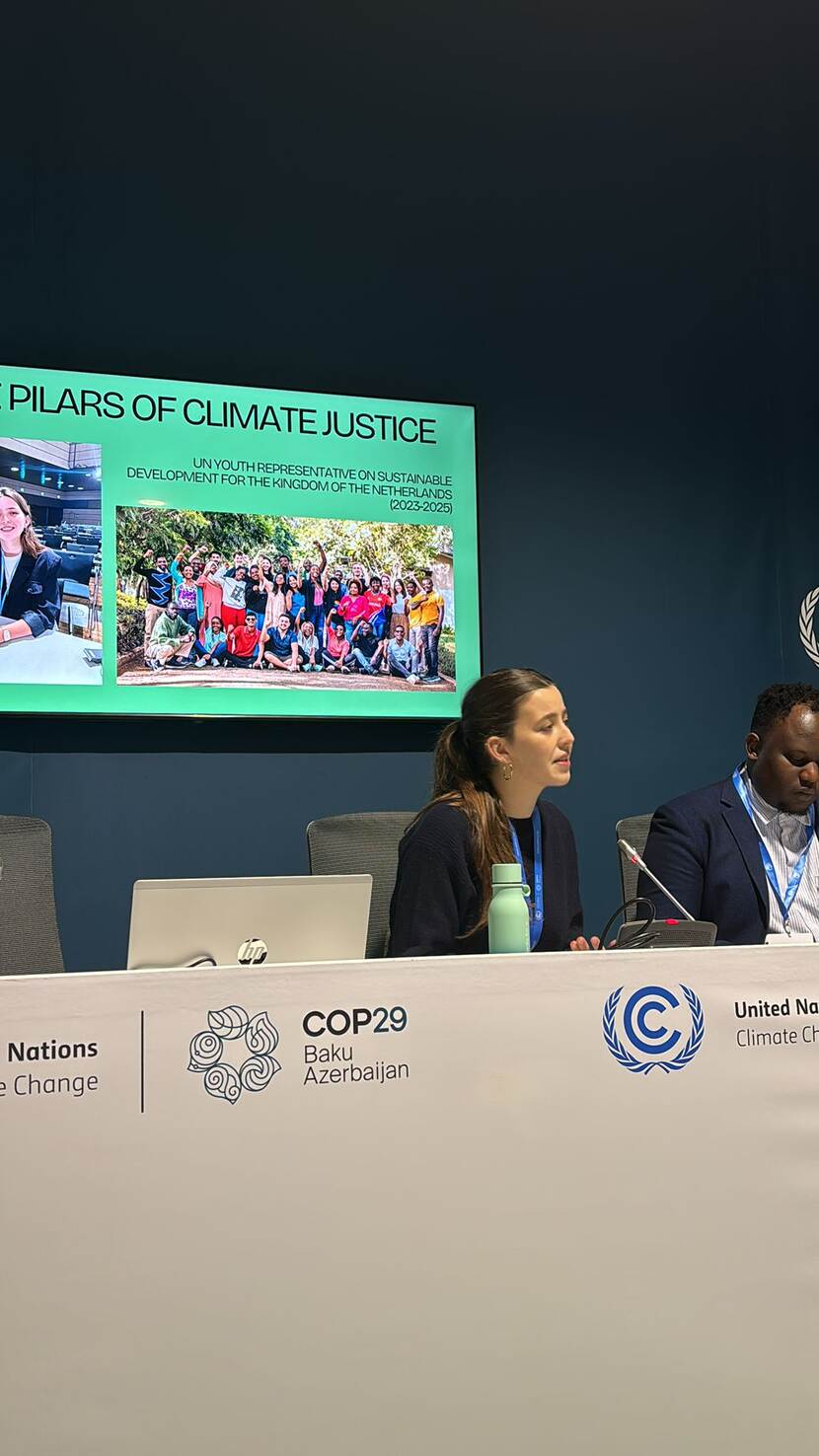
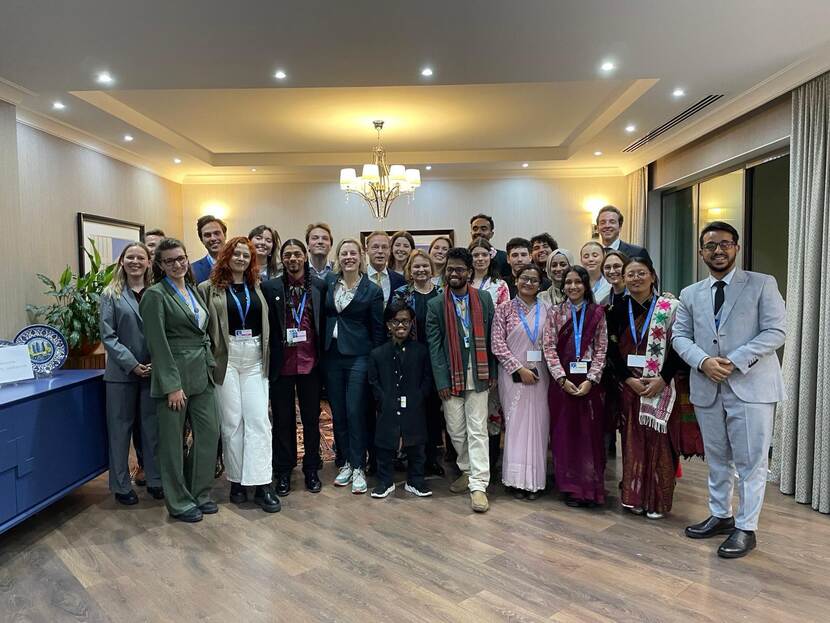
Tangible result
Back to Jaime, who travelled to COP29 bursting with ambition: ‘I am working with the other envoys and the negotiators to make this climate summit a success,’ he says. ‘By prioritising climate finance and negotiations, countries can move forward with their ambitions and climate plans. I’m hoping that we can step up our ambitions for mitigation, while maintaining a strong focus on adaptation. Next year’s negotiations will centre on these two themes. For now, the envoys are each working in their own specific fields to exchange knowledge and expertise, creating opportunities for the Netherlands and promoting the green transition.’
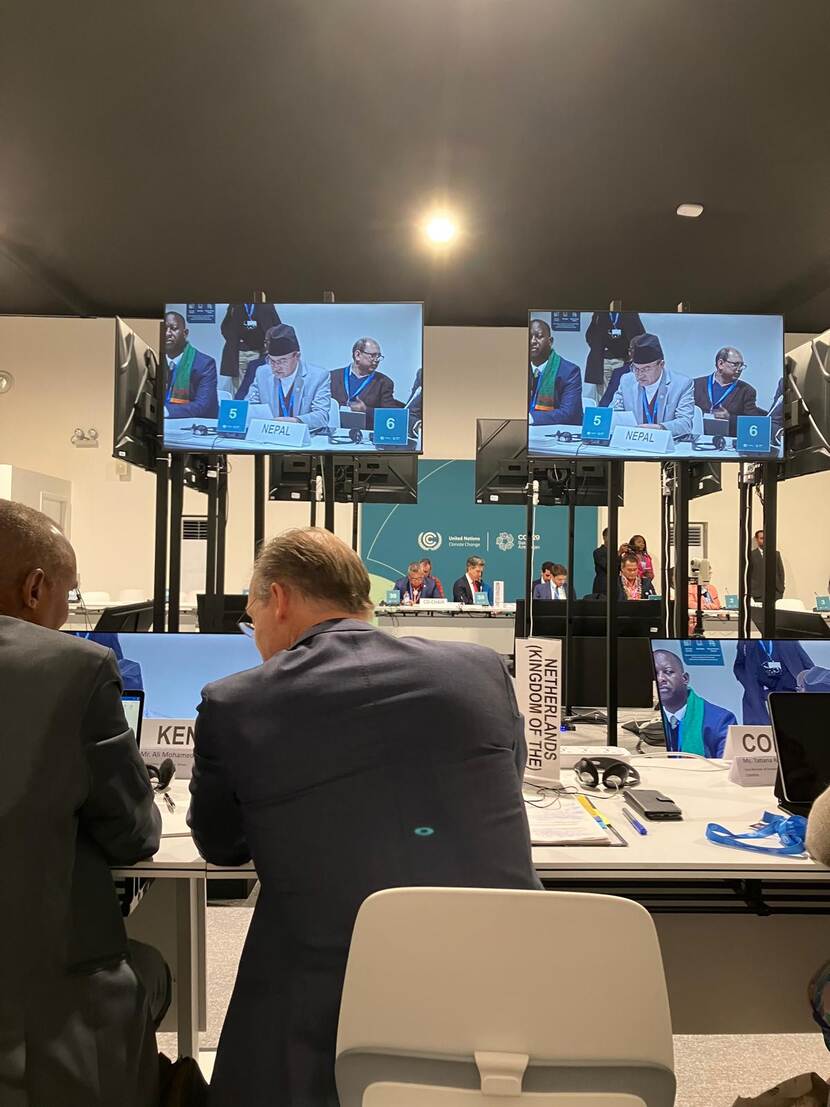
At COP28 in the United Arab Emirates the Dutch delegation proved that tangible results can be achieved at such summits. Jaime concludes, ‘As our energy envoy already said, at COP28 we made key agreements, including tripling global renewable energy capacity and doubling energy efficiency, while transitioning away from fossil fuels. We sent out a clear message – not only to our political leaders, but also to the markets. We’re committed to anchoring these agreements in the new round of climate plans that countries will present over the next year. The enthusiastic responses to the summit’s outcome were partly due to the early decision to set up a Loss and Damage Fund. I was one of the negotiators. The fund will come into operation this year.’